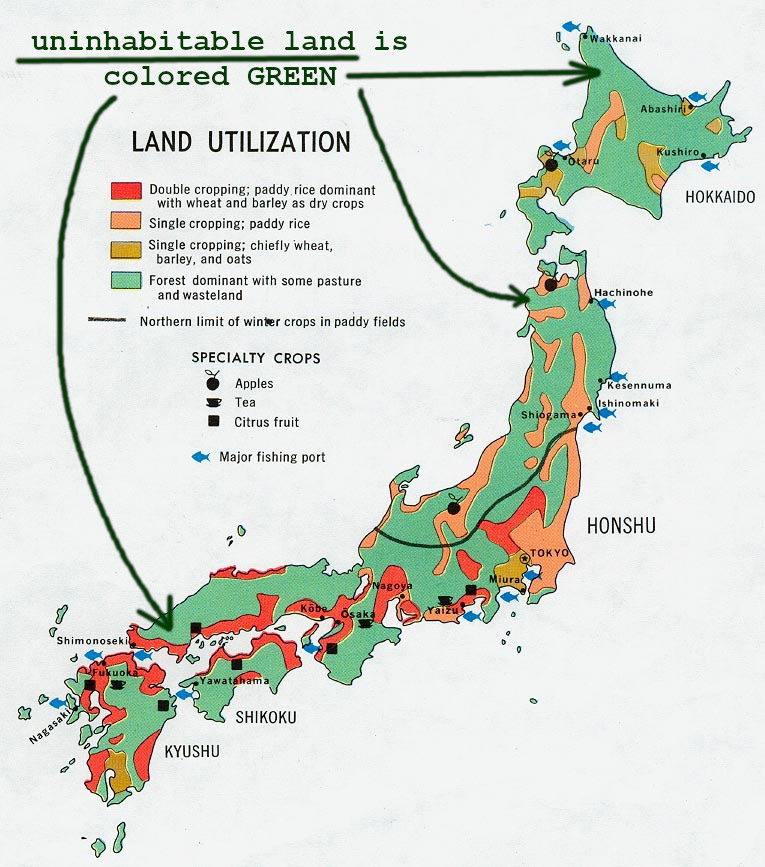Very good substack by Igor & he nuanced the topic well; I have three points to add to Chudov's treatise & question: "Can Population Declines Be Beneficial?"; the 3 issues we must hold central IMO are
1)any population decline or 'change' must be NATURAL, based on natural forces, not an UNSEEN malevolent hand ii)impact of INDUSTRIAL revolution, OIL discovery iii)illegals invading in any decline
Start Igor here:
‘As many of you know, I have written several posts regarding Covid vaccines causing pregnancy problems and infant deaths. I covered esoteric topics like projects to create infertility viruses, other vaccines, etc.
My numerous posts described and criticized depopulation, defined as intentional reductions in births and increases in mortality, brought upon unsuspecting families by malevolent manipulators.
Lastly, I reported on the plan by the Club of Rome aptly named the Giant Leap - a strategy to reduce the number of births by 81% by the end of this century.
Since this topic is interesting, newsworthy, and appeals to my readers, I kept reading everything I could find about population trends, plans to reduce population, etc.
And I started having second thoughts.
Look at Japan and South Korea to see why I am doubting myself.
Is Depopulation Good for Japan?
Japan’s birth rates have fallen below replacement values since 1974, and fell to a new record low in 2023.
Is that good or bad?
Consider this: Japan is badly overpopulated. It is a beautiful country spanning several mountainous islands. Unlike most European countries, only 33% of Japan’s territory is habitable:
Japan’s population density on habitable land is 1,523 persons per square kilometer for habitable land, according to Wikipedia. This is higher than the population density of Bangladesh, the most densely populated country on Earth.
Covid measures and vaccinations contributed a mere blip in Japan's relentless birth decline. The birth reduction between 2021 and 2022 was greater than in the preceding and successive years, but the “Covid effect” did not amount to much.
South Korea is Even Worse
The birth rate (expected number of births per woman) should be about 2.1 to maintain a stable population level. As of 2023, the birth rate in South Korea fell again to 0.72, or three times under the maintenance level.
This BBC article discusses the reasons why South Korean women choose not to have children:
Look closely at the above picture. You can see that the room where the three lonely women are socializing is simultaneously the bedroom, the study, and the dining room, representing a tiny living space.
The BBC article lists many reasons for falling birthrates, such as:
Too expensive real estate
Children cost too much due to the tiger mom-style attitudes of Korean mothers, who raise hypercompetitive children who will need to make enough money to afford scarce real estate when they grow up
General displeasure of women with their own super stressful tiger childhoods, and unwillingness to experience toxic “family life” that they came to know
The article does not mention Covid vaccines, which should not surprise anyone familiar with the BBC
The article is worth reading, but all the above problems are connected to bad overpopulation.
South Korea, a small country, has 52 million people and 70% of land covered by mountains and therefore considered uninhabitable. According to my calculations, South Korea’s population density on habitable land is 1,676 people per square kilometer, worse than Japan's.
This picture shows a typical “concrete jungle” in Seoul:
Neither Country Suffers from “Government Depopulation Conspiracy”
Both countries are experiencing population collapse. The number of young people halves with each generation in Japan and falls by three times with each generation in South Korea. (it will get worse) The declines also seem to be speeding up as the birth rates keep falling.
This causes much consternation in both countries. The governments give subsidies to new parents, but there are few takers. There is no evidence of a “depopulation conspiracy” perpetrated by either country’s government.
However, I must ask the question:
Will South Korea and Japan benefit from having greatly reduced populations in 100 years and having more room for every person?
Most of my readers are familiar with the pro-natalist tendencies of this blog. I always objected to attempts to undermine the fertility of people wanting to become parents. While many people expressed similar attitudes, one user McKeeKitty gently questioned me in her comments, and I began to doubt my universal pro-natalism.
I cannot shake off the thought that some countries would greatly benefit from having fewer people and more space per person. Perhaps South Koreans and Japanese citizens, 100 years from now, may enjoy luxuries like single-family homes, personal backyards, and parks near every neighborhood instead of living in tiny studios.
Will Entire Nations Disappear?
A few months ago, my blog post on the plans of the WEF and the Club of Rome to “reduce births by 81%” mentioned the Calhoun mouse utopia experiment: mice placed in artificial “mouse socialism” conditions, where the rodents were provided with a shared living space and abundance of food.
Despite multiplying from under a dozen to over 2,200, the mice living in the overpopulated colonies eventually decided not to procreate. Sexually perverse behaviors began to dominate. Instead of meeting each other and making babies, the mice stayed alone in their tiny personal spaces, obsessively grooming themselves and refusing to socialize.
The mouse colonies uniformly died off in all experiments.
Will that happen to human societies? The honest answer is that I do not know. I expect some nations will cease to exist 100-150 years from now.
Having children, previously the norm for all societies, may soon become the exception while being child-free would be celebrated.
However, there are two reasons to be optimistic that humanity will not go extinct.
Humans are Not Mice
We people are more diverse than mice. We have written language, religions, and traditions. (All religions are pro-natalist for a good reason.) Refusal to procreate will remove the refusers’ genes from the gene pool. Those remaining will have more living space, more desire to reproduce, and greater motivation.
Could the “population collapses” that Japan and Korea are experiencing be the necessary and natural cleansings that need to happen to keep humans in balance with the land that they inhabit?
Depopulation, when it happens due to underhanded actions of evil overlords, wanting to interfere with natural fertility, is a bad thing, and I hope you agree.
However, is it universally bad when populations naturally decline due to voluntary individual decisions of humans living in unfriendly, crowded conditions?
Will the future nations be made of better, more resilient constituents who survived and persevered during population declines?
The Stronger Nations Will Take Over
It is possible that some societies will go the way of Calhoun mice, refuse to reproduce, and would essentially disappear. If so, their cultures and languages would only exist in books and computer recordings.
If that happens, the abandoned lands will not stay vacant for long. They would be taken over by the 22nd century Vikings and explorers - after the Earth shakes off the excess population and lives in a better balance between humans and nature.
That said, I want my great-grandchildren to be born, despite the odds, so they can witness the amazing transformations of the future.
I hope that I have not upset you
This post departs from my usual fare, as I often criticize plans to “reduce populations.” I have been having doubts about what is good and what is bad.
After struggling with whether to suppress or express such doubts, I decided to share my conflicted thoughts with you, my readers.
Ultimately, I cannot hide my cognitive dissonance from you as I owe you my honesty, especially considering that hundreds of people pay me subscription fees (thanks to those, as always). This inner struggle is why this post took so long to write. I may lose some paid and unpaid subscribers for stating my opinion in this article, but if that happens, so be it.
Feel free to flame me and disagree - and if you do, please explain how Japan and South Korea will benefit from having MORE people!’











It is quite interesting to note Jesus stated and recorded near two thousand years ago in Matthew 24 :22 regarding man's evil Greed and love of money, "except ⁵those days should be shortened, there should no flesh be saved". The Bioweapons may be intercepted by someone a lot Greater than this bunch of Liars. It is amazing how the Scriptures knew long, long ago. Get ready Folk! He has been watching all along with Bigger plans.
Wait for the magnetic pole switch (due round about now).
Or, even better, wait for the mini black holes the lunatics at CERN etc. have been producing by the billions to grow up.
In fact, the CERN debacle is somewhat reminiscent of the last 4 years. Any physicist/scientist who raised questions regarding the narrative of safe and effective particles was shouted down, ignored, defunded etc.